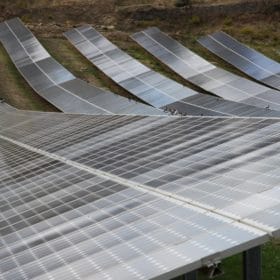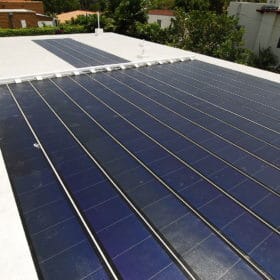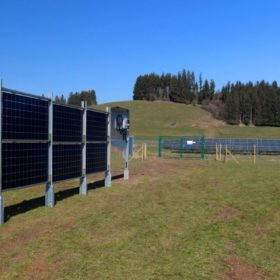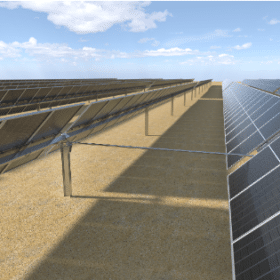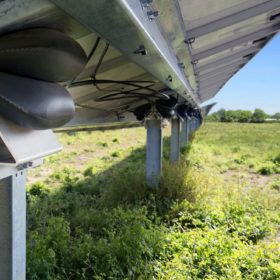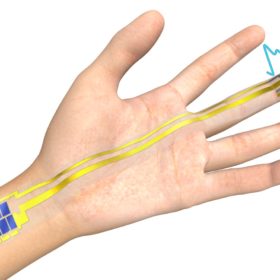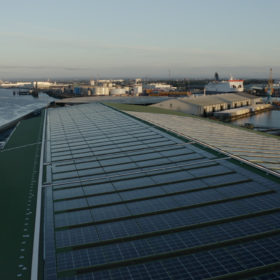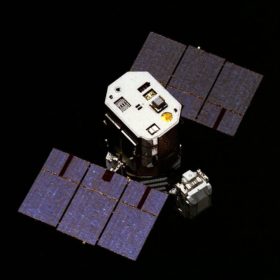Unsubsidized solar may reach 57 GW in Italy by 2040
New research by Aurora Energy Research expects new unsubsidized solar PV capacity to grow to 5 GW by 2025, 12 GW by 2030, 32 by 2035, and 57 GW by 2040.
India tenders 1.2 GW of hybrid wind-solar projects
Projects selected in the procurement exercise will sell power to the Solar Energy Corporation of India (SECI) under a 25-year PPA.
Amorphous silicon solar cells still niche market
In the second interview of a series, Arvind Shah, a professor at École polytechnique fédérale de Lausanne, told pv magazine about the challenges facing amorphous silicon cells. He said the tech could be used in some window applications and greenhouses, but not in rooftop projects, as the stabilized efficiency of these cells is too low.
German power provider tests vertical agrivoltaics
Lechwerke is testing two pilot systems close to existing solar parks. It also aims to build its first large-scale project.
Trina launches tracking system for high-power modules
The tracker has a length of 72 meters, which the company says allows for 120 modules per tracker. The new product was conceived as a multi-drive, dual-slewing system that is claimed to have improved overall stability compared to other products and to show a reduced aeroelastic effect.
Juwi builds on Australian off-grid portfolio with 13 MW solar project
The Australian unit of Germay’s Juwi has added another off-grid solar PV project to its burgeoning portfolio. It said it will construct a 13 MW solar farm at the site of the Gruyere gold mine in Western Australia.
Geospatial approach to evaluation of potential solar sites
A U.S. research group has used high-resolution data to drill down to individual parcels of land, in order to figure out how much space is available for solar at optimal locations and preferred sites.
I’ve got solar over my skin
Researchers in Japan have built a PV-powered device to measure volumetric variations in blood circulation. The system, which is just a few microns thick, was built with an organic solar module, a polymer light-emitting diode (PLED), and an organic photodetector.
UK added 175 MW of solar in first quarter
More than 7% of the U.K.’s solar generation capacity is now unsubsidized, according to trade body Solar Energy UK, with the nation reaching more than 14 GW of photovoltaic projects during the first three months of the year.
5N Plus enters space solar cell business with acquisition of Azur Space
The purchase price should range between €73 million and €79 million. Azur Space produces triple-junction space solar cells with an average efficiency of up to 30% and is planning to develop ultra-thin solar cells with up to 35%.
